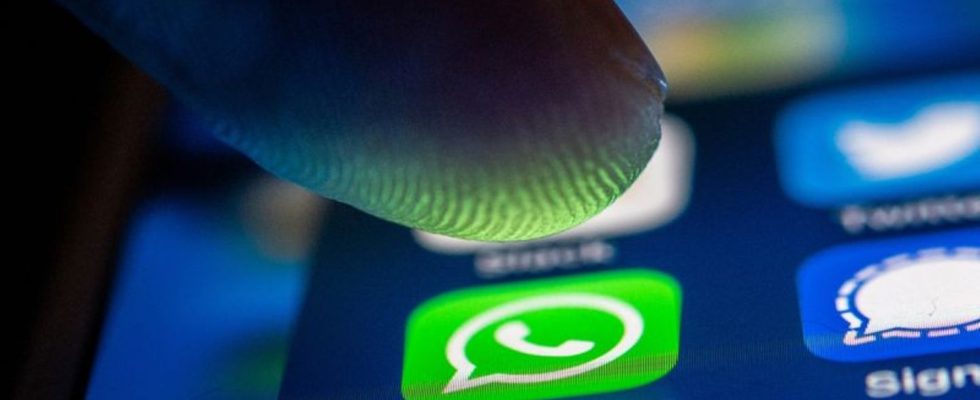10 years after Facebook purchase: WhatsApp unchanged
WhatsApp proved to be the right SMS alternative at the right time. photo
© Zacharie Scheurer/dpa
When Facebook decided to buy WhatsApp, there were great concerns. But the chat service remained ad-free and easy to use. However, the opportunity for an alternative online business model was missed.
Would the service have lost out in competition with the tech giants? Or would the business model with a subscription fee of one dollar per year have established itself as an alternative to free services where you are overwhelmed with personalized advertising?
Immediately after the deal was announced on February 19, 2014, user concerns arose that the service could fundamentally change under Facebook’s direction. After all, doesn’t the money spent have to be earned back somehow? And by the time the takeover was completed in October 2014, the purchase price had swelled to almost $22 billion – a large portion was paid in Facebook shares, which had risen in price.
WhatsApp today
Ten years later, WhatsApp is still unmistakably WhatsApp. There are no advertising, the app is tied to the phone number instead of a profile. And all messages are protected with end-to-end encryption, which ensures that they are only visible in plain text on the participating users’ devices, but not to the service.
When Facebook decided to buy WhatsApp, the service still had around 450 million users. And more traditional SMS messages were actually sent than chat messages. Today it is unimaginable to pay money per individual message – at that time, mobile phone providers were just coming to terms with the fact that they would lose this once lucrative source of money.
WhatsApp proved to be the right SMS alternative at the right time. The ease of use didn’t deter even those new to smartphones. And the service built a bridge between iPhones and phones with Google’s Android system. Apple’s chat service iMessage is only available on the company’s devices – and the need for a cross-platform solution was there.
WhatsApp was only launched in 2009. The two co-founders Jan Koum and Brian Acton had worked at the then Internet heavyweight Yahoo and then wanted to try their hand at their own start-up.
Allegations against Facebook and WhatsApp’s business model
Facebook became aware of the service through the purchased VPN app Onavo, which the company also used to identify trends in users’ habits. The explosive growth of WhatsApp observed may have been an explanation for the sensational purchase price. In a competition lawsuit, the US government accuses Facebook of simply buying a competitor off the market before it could pose a threat to the company. She brought up the idea of splitting off the service. The process for this is still pending.
The Facebook company Meta, meanwhile, believes it has found a way to finally make money with WhatsApp. Facebook quickly dropped the subscription fee of one dollar after the takeover. Nothing will change for users, but companies will pay money to communicate with their customers via WhatsApp.
Earnings and founders after the takeover
In the last quarter, Meta’s app revenue outside of the advertising business jumped by 82 percent, primarily thanks to WhatsApp’s business platform. However, at $334 million, they accounted for just 0.8 percent of the group’s total sales.
The founders Koum and Acton only stayed with WhatsApp for a few years after the takeover. Koum announced that he would now take time out for things outside of the technology industry, “for example collecting rare air-cooled Porsche cars” – and largely disappeared from the scene. Meanwhile, Acton invested in the chat app Signal, whose encryption technology WhatsApp also uses today.
Signal also recently provided proof that WhatsApp’s original business model could have worked. The chat service, which is funded by donations like Acton’s, estimated it would need about $50 million for development and operations next year. With just one dollar per user, WhatsApp would have earned many times that amount.

